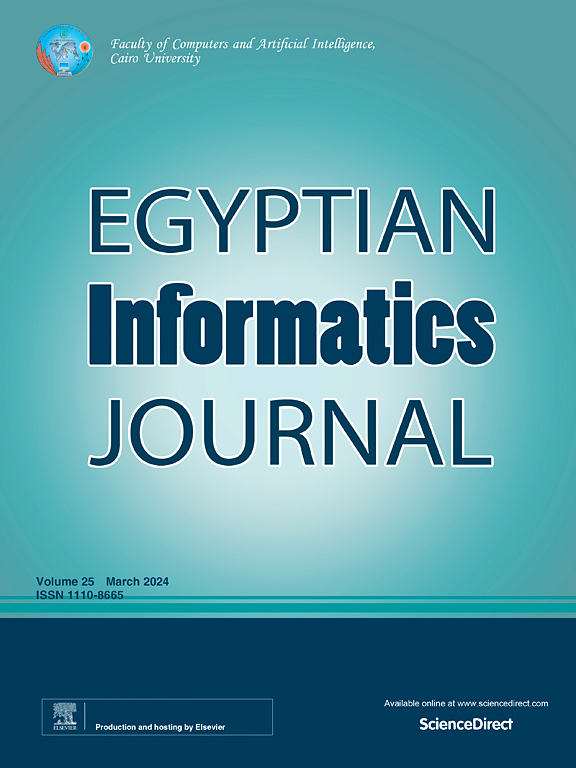ActivFairNet: A novel framework for mitigating bias in deep learning networks using activation map-based fairness regularization
IF 4.3
3区 计算机科学
Q1 COMPUTER SCIENCE, ARTIFICIAL INTELLIGENCE
引用次数: 0
Abstract
The rapid advancements in Artificial Intelligence underscore the pressing need to address fairness in deep learning, particularly in critical fields like healthcare where decisions have direct and significant impacts on lives. Despite considerable progress, biases associated with sensitive attributes such as gender, race, and age remain pervasive, presenting substantial challenges to achieving equitable and reliable outcomes. This paper introduces ActivFairNet, a novel bias mitigation framework that integrates activation maps as a fairness regularizer. The framework ensures unbiased representation learning across demographic groups while maintaining or enhancing predictive accuracy, making it both effective and practical for real-world applications. The ActivFairNet is evaluated in a COVID-19 detection case study using a chest X-ray dataset collected from five public repositories. Its effectiveness was tested on three models with varying gender distributions, employing two widely recognized deep learning architectures, DenseNet121 and Xception. The results demonstrate that the ActivFairNet Regularizer consistently outperforms three established bias mitigation techniques, significantly reducing bias across key fairness metrics. Specifically, the method achieves substantial improvements, including a Statistical Parity Difference (SPD) of 0.003 (down from 0.162), an Equal Opportunity Difference (EOD) of 0.000 (down from 0.276), and an Average Odds Difference (AOD) of 0.002 (down from 0.185). The ActivFairNet Regularizer offers a practical, scalable, and ethically aligned solution for mitigating demographic bias in medical imaging, contributing to the advancement of fair and reliable AI systems in real-world healthcare environments.
ActivFairNet:一个使用基于激活图的公平性正则化来减轻深度学习网络偏差的新框架
人工智能的快速发展凸显了解决深度学习公平性问题的迫切需要,尤其是在医疗保健等关键领域,在这些领域,决策对人们的生活有着直接而重大的影响。尽管取得了相当大的进展,但与性别、种族和年龄等敏感属性相关的偏见仍然普遍存在,为实现公平可靠的结果带来了重大挑战。本文介绍了一种新的偏差缓解框架ActivFairNet,它将激活映射集成为公平性正则化器。该框架确保了跨人口群体的无偏表示学习,同时保持或提高了预测的准确性,使其在现实世界的应用中既有效又实用。ActivFairNet在COVID-19检测案例研究中进行了评估,使用了从五个公共存储库收集的胸部x射线数据集。它的有效性在三个不同性别分布的模型上进行了测试,采用了两种广泛认可的深度学习架构,DenseNet121和Xception。结果表明,ActivFairNet Regularizer始终优于三种既定的偏差缓解技术,显著降低了关键公平性指标的偏差。具体来说,该方法实现了实质性的改进,包括统计奇偶差(SPD)从0.162下降到0.003,均等机会差(EOD)从0.276下降到0.000,平均赔率差(AOD)从0.185下降到0.002。ActivFairNet Regularizer提供了一个实用的、可扩展的、符合道德的解决方案,用于减轻医学成像中的人口偏见,有助于在现实医疗环境中推进公平可靠的人工智能系统。
本文章由计算机程序翻译,如有差异,请以英文原文为准。
求助全文
约1分钟内获得全文
求助全文
来源期刊

Egyptian Informatics Journal
Decision Sciences-Management Science and Operations Research
CiteScore
11.10
自引率
1.90%
发文量
59
审稿时长
110 days
期刊介绍:
The Egyptian Informatics Journal is published by the Faculty of Computers and Artificial Intelligence, Cairo University. This Journal provides a forum for the state-of-the-art research and development in the fields of computing, including computer sciences, information technologies, information systems, operations research and decision support. Innovative and not-previously-published work in subjects covered by the Journal is encouraged to be submitted, whether from academic, research or commercial sources.
 求助内容:
求助内容: 应助结果提醒方式:
应助结果提醒方式:


